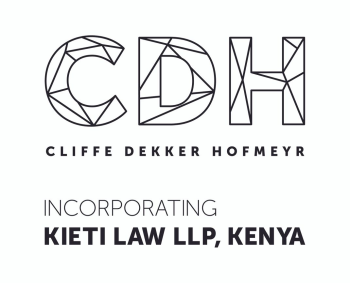Chapter 5 of the Tax Administration Act (28/2011) confers a broad range of information gathering powers on the South African Revenue Service (SARS).
Taxpayers are often assessed for more than one tax period at a time. However, problems arise when the issues being investigated by SARS overlap with disputes pending before the Tax Court. The taxpayer is then saddled with defending itself in respect of one tax period before court while simultaneously sourcing and providing relevant material pertaining to the same legal issues for an audit of a later tax period. In these circumstances, there is often an overlap of facts, law and witnesses which will ultimately be presented in court, rendering the information gathering process questionable.
The following question arises: is it procedurally fair for a taxpayer engaged in a dispute before the Tax Court to be subjected to a parallel process under the Tax Administration Act concerning essentially the same dispute? Parallel processes are of concern because they give SARS the potential to gain insight into the taxpayer's litigation strategy and obtain a preview of witnesses' testimony before trial.
Of course, these are impermissible in law since they constitute a direct infringement of a taxpayer's right to litigation privilege. In civil and criminal litigation these problems are avoided by means of the lis alibi pendens (ie, dispute pending elsewhere) rule, which prevents parties from replicating proceedings in different forums and protects litigants from breaching the rules of litigation (eg, litigation privilege).
Correlating with this is the res judicata (ie, matter already judged) rule, which is intended to prevent a party from reopening a case where a court has already ruled on the matter. Section 99(1)(e) of the Tax Administration Act provides that SARS may not make an assessment that has been resolved under Chapter 9 of the act. In effect, this section is similar to the concept of res judicata.
The question that then arises is whether SARS can conduct parallel proceedings (ie, an audit to gather information in respect of later years of assessment) where the same issues are already pending before the Tax Court. Further, can a taxpayer use the rules of litigation to prevent SARS from proceeding with an audit?
Constraints on information gathering powers
An immediate difficulty in raising these litigation rules in tax matters is that the provisions of the tax acts are amended on an annual basis and thus issues in one tax period may be factually identical but legally different from those in later tax periods. In other words, the parties and the facts of the matters may stay the same, but the applicable taxing provisions may change.
The other problem is that the rules of res judicata and lis alibi pendens apply specifically in the context of litigation. The provisions dealing with information gathering are contained in Chapter 5 of the Tax Administration Act and are primarily investigative mechanisms used by SARS "for purposes of the administration of a tax Act". It would thus be impossible to invoke the rules of lis alibi pendens in matters where there is an overlap between a field audit, which is administrative in nature, and pending litigation. However, SARS is constrained from exceeding the scope of its powers in the following respects:
- Section 46(1) of the Tax Administration Act provides that SARS may request information only "for purposes of the administration of a tax Act". It may not use its investigative powers with the intention of seeking evidence to conduct its defence in a matter before the Tax Court; and
- SARS may not interview witnesses without having regard to the rules of litigation privilege. SARS may use the information gathering provisions in Chapter 5 to interrogate the taxpayer's witnesses, but only for a legitimate purpose and in a manner that does not undermine the fairness of litigation.
In cases where a dispute is running in parallel with a field audit, a taxpayer may have limited grounds to prevent the audit from proceeding. To the extent that the taxpayer is prejudiced (in that its right to litigation privilege is infringed), it will need to make out a clear case of prejudice in order to prevent SARS's investigation from proceeding.
Should SARS continue to use its investigative powers to probe the taxpayer's privileged information and exceed the scope of its powers, the taxpayer can challenge SARS to review under the Promotion of Administrative Justice Act (3/2000).
For further information on this topic please contact Yashika Govind at Cliffe Dekker Hofmeyr by telephone (+27 11 562 1000) or email ([email protected]). The Cliffe Dekker Hofmeyr website can be accessed at www.cliffedekkerhofmeyr.com.
This article was first published by the International Law Office, a premium online legal update service for major companies and law firms worldwide. Register for a free subscription.


